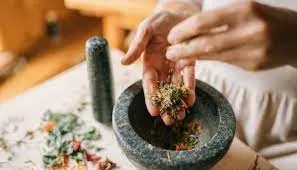
High blood sugar: At least 400 medicinal plants have anti-diabetic properties that can control type 2 diabetes, say researchers.
“There are at least 400 medicinal plants in nature that may be effective in lowering blood sugar levels, which is essential for controlling type 2 diabetes,” said researchers at the Jawaharlal Institute of Postgraduate Medical Education and Research (JIPMER). in Puducherry and the All India Institute of Medical Sciences in Kalyani, West Bengal, in a study published in the World Journal of Diabetes.
“So far, only 21 herbs have been studied, including ‘vijayasar’, ‘jamun’, cumin, ‘neem’, ‘amla’ and turmeric, which have been found to have significant anti-hyperglycemic action. .
These medicinal plants have been the basis of many drugs to manage diabetes after analyzing the data available in PubMed while citing examples of herbal formulations like BGR-34 prepared by Council of Scientific and Industrial Research (CSIR).
Marketed by AIMIL Pharmaceuticals, BGR-34 contains not one but several active compounds derived from four medicinal herbs namely ‘Daruharidra’, ‘Gudmar’, ‘Methi’ and ‘Vijayasar’.
Sanchit Sharma, Executive Director, AIMIL Pharmaceuticals, said, “Apart from this, “Gilo” and “Majith” have been added to boost immunity and boost antioxidant levels.
Last year, a study by AIIMS Delhi found that BGR-34 is effective not only in reducing sugar but also in reducing obesity. This Ayurvedic medicine also improves the metabolic system of the body.
The study titled ‘Treatment in nature’s lap: use of herbal products in management of hyperglycemia’ also mentions that although eight plants including pomegranate, shilajit, bean, tea, ginkgo biloba have been partially studied. And saffron, which has shown anti-diabetic properties, needs more trials.
“Surprisingly, many allopathic medicines have a herbal background,” the researchers noted while citing examples of allopathic medicines for diabetes management, such as metformin, which is derived from the Galega officinalis plant used to treat diabetes in Europe in the 19th century.
“Similarly, SGLT2 (sodium-glucose cotransporter-2), which is effective in treating diabetes, was developed after obtaining phlorizin from apple tree bark,” they said, making a strong case for evidence-based testing in natural products. , which is “expected to open the door to the development of novel drugs in the modern management of diabetes in the future”.




































